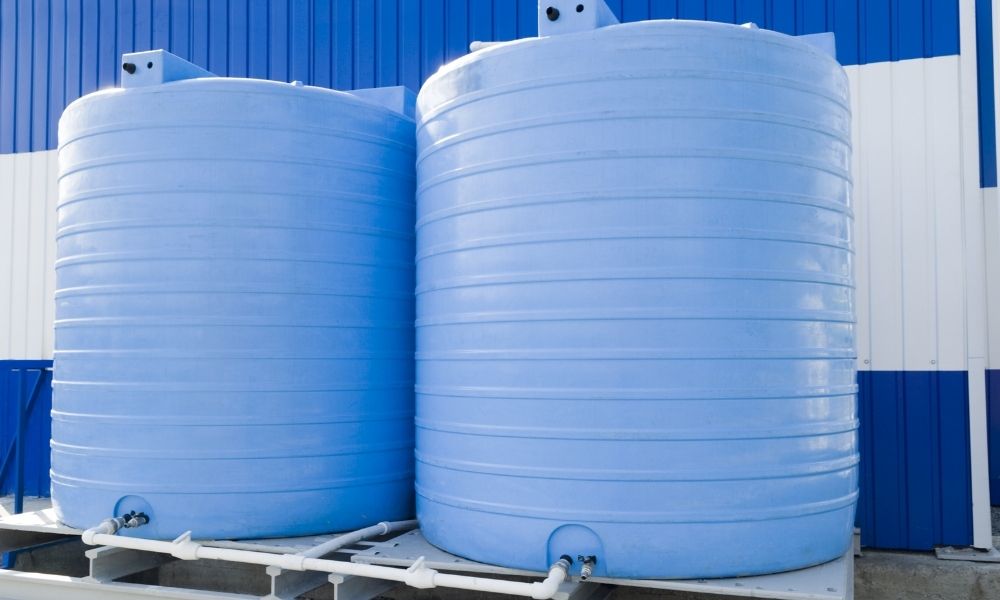Introduction:
Rotational molding water tanks are essential for storing and preserving water in a reliable and durable manner. With their unique manufacturing process, rotational molding tanks offer numerous advantages, making them the preferred choice for various applications. This article explores the benefits of rotational molding water tanks, their design features, installation considerations, and maintenance guidelines. Whether you’re looking for water storage solutions for residential, commercial, or industrial use, understanding the advantages and considerations of rotational molding water tanks is crucial.
Advantages of Rotational Molding Water Tanks:
Rotational molding water tanks offer several advantages over traditional water storage options. Firstly, they are highly durable and resistant to impact, making them suitable for outdoor use. Their seamless construction eliminates the risk of leakage, ensuring long-term reliability. Rotational molding tanks are also lightweight, allowing for easy transportation and installation. Additionally, they have excellent UV resistance, preventing the degradation of the tank material when exposed to sunlight. The manufacturing process enables the tanks to have consistent wall thickness, ensuring structural integrity and optimal water storage capacity.
Design Features of Rotational Molding Water Tanks:
Rotational molding water tanks are available in various shapes and sizes to accommodate different storage needs. They can be cylindrical, rectangular, or custom-designed based on specific requirements. The thickness of the tank walls is carefully controlled during the manufacturing process to ensure durability and resistance to external forces. UV-stabilized materials are used to protect against sun damage, extending the lifespan of the tank. Seamless construction eliminates the risk of leaks and allows for easy cleaning. Fittings and accessories such as inlet/outlet valves, overflow pipes, and level indicators can be integrated into the tank design.
Installation Considerations for Rotational Molding Water Tanks:
Proper installation is crucial for optimal performance of rotational molding water tanks. When selecting a location, consider factors such as access for maintenance and water delivery, proximity to the water source, and stability of the ground. The tank should be placed on a firm and level foundation to prevent shifting or damage. Plumbing connections must be properly installed to ensure a secure and reliable water flow. Adequate overflow and ventilation systems should be in place to manage excess water and prevent pressure build-up. Accessibility and safety measures, such as ladders and safety covers, should be considered, especially for larger tanks.
Maintenance and Cleaning of Rotational Molding Water Tanks:
Regular maintenance is essential to ensure the longevity and cleanliness of rotational molding water tanks. Regularly inspect the tank for any signs of damage, including cracks, leaks, or degradation. Clean the tank periodically to remove sediment, debris, and any potential contaminants. Use non-abrasive cleaning agents and tools to avoid damaging the tank surface. Implement measures to control algae and bacteria growth, such as using UV-resistant materials and employing appropriate water treatment methods. If repairs or maintenance are needed, consult professional services experienced in rotational molding water tank maintenance.
Applications of Rotational Molding Water Tanks:
Rotational molding water tanks find applications in various sectors. In residential settings, they are commonly used for domestic water storage, rainwater harvesting, and irrigation purposes. Commercial and industrial facilities utilize these tanks for fire protection systems, process water storage, and emergency water supply. Agricultural applications include livestock watering, irrigation systems, and nutrient storage. Rotational molding tanks also serve as a reliable source of water in remote areas or during natural disasters. Their versatility and durability make them suitable for a wide range of water storage needs.
Comparing Rotational Molding Water Tanks with Other Materials:
When choosing a water storage solution, it’s essential to consider the advantages of rotational molding water tanks compared to other materials. Steel tanks offer strength but are prone to corrosion. Concrete tanks are durable but require significant installation effort. Fiberglass tanks are lightweight but can be susceptible to cracking. Rotational molding water tanks combine the best features of these materials, providing durability, resistance to corrosion, ease of installation, and seamless construction.
Environmental Benefits of Rotational Molding Water Tanks:
Rotational molding water tanks contribute to environmental sustainability. They are often made from recyclable materials, reducing the overall impact on natural resources. Additionally, their durability and long lifespan minimize the need for frequent replacements, reducing waste. Rotational molding water tanks also promote water conservation by providing a reliable means of storing rainwater and reducing dependency on municipal water supplies.
Regulations and Certifications for Rotational Molding Water Tanks:
Depending on the region and application, rotational molding water tanks may need to adhere to specific regulations and certifications. Ensure that the tanks meet relevant industry standards and comply with local guidelines for water storage and safety. Look for certifications such as NSF/ANSI Standard 61 for drinking water system components to ensure the tanks are suitable for potable water storage.
Conclusion:
Rotational molding water tanks offer durable, reliable, and versatile water storage solutions for a wide range of applications. With their unique manufacturing process, design flexibility, and advantages over traditional water storage options, rotational molding water tanks are the preferred choice for residential, commercial, and industrial use. By understanding their benefits, design features, installation considerations, and maintenance guidelines, you can make an informed decision when selecting a water storage solution that meets your specific needs. Invest in rotational molding water tanks for long-lasting, efficient, and secure water storage solutions.




Leave a Reply
Want to join the discussion?Feel free to contribute!